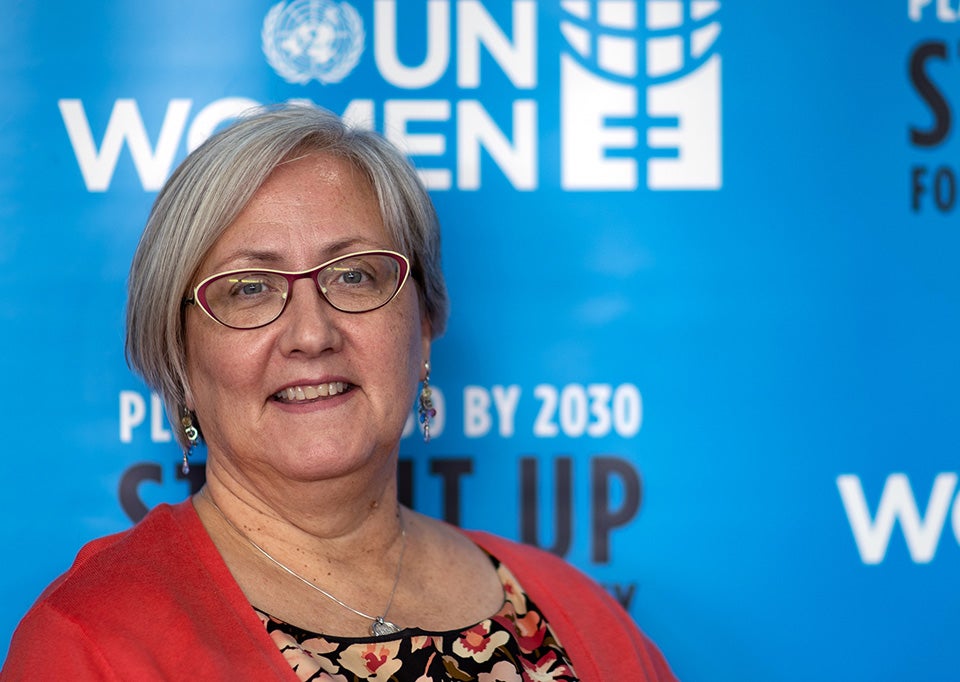Canadian ambassador: “We need to amplify the voices for good and equality” nearly 25 years after Beijing Declaration
Date:

Donica Pottie, Canadian Ambassador to Thailand, participated as a young diplomat and activist in the 1995 Fourth World Conference on Women in China, which resulted in the Beijing Declaration and Platform for Action. As the global community prepares to mark 25 years of the Declaration in 2020, she spoke about the challenges facing the new generation of advocates fighting for gender equality and the empowerment of women and girls.
When we went into the 1995 World Conference on women the circumstances were very difficult. In fact even the word “gender” was bracketed as disputed text. I think people were worried going into it about how to get a better result than in previous conferences.
Many of the challenges I think remain the same. Some of the forces that tried to make the Beijing outcome document roll back rights for women are still present today. We still see pushback against women’s rights in all parts of the world. And therefore the core requirement for women activists remains the same. We need to be well prepared; we need to be tenacious; we need to make sure that we don’t stop talking about our own point of view and arguing that we deserve – that we must have equality.
But some of the topics are new and require specific attention. The consequences of a failure to grapple with climate change are already being felt, for example in island Pacific countries. And they are particularly acutely felt by women, who often have primary roles in the family and in holding the community together.
Canada has taken steps to reduce its own carbon emissions and is also trying to contribute to international efforts – including the summit on women and climate titled “Kicking It”, hosted by the environment minister last year [during the G7 summit in Quebec in June 2018]. So I think we’re on the right road, but there’s a lot more work to be done.
Another thing that may be more important to younger activists is the use of social media, which was not at all on the horizon when we were in Beijing. This can be a force for good, for amplifying messages of women and helping them find like-minded women, regardless of geography. But it can also be a force for hatred, connecting people who are trying to push back against women’s equality, or groups promoting violence against women. So it’s a double-edged sword for activists now. We need to amplify the voices for good and equality, and resist the amplification of the voices for hatred.
* Her comments have been edited for clarity and concision.